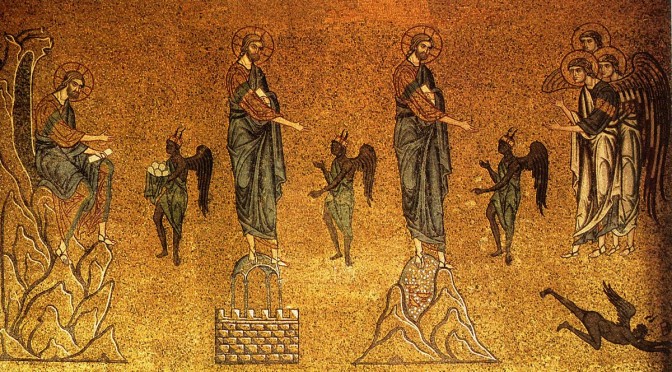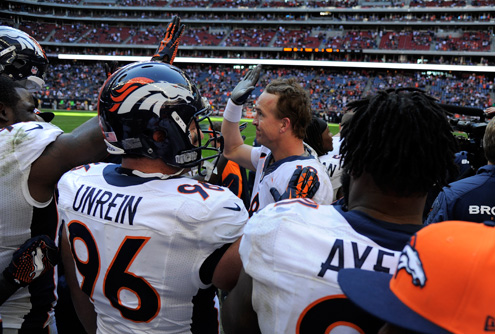**sermon art: Jesus performs an exorcism with a demon escaping a woman’s mouth. A scene from the abstinence cloth in the Cathedral of Gurk, Carinthia, Austria (1458)
Caitlin Trussell with Augustana Lutheran Church on January 28, 2024
[sermon begins after the Bible reading]
Mark 1:21-28 [Jesus and his disciples] went to Capernaum; and when the sabbath came, he entered the synagogue and taught.22They were astounded at his teaching, for he taught them as one having authority, and not as the scribes. 23Just then there was in their synagogue a man with an unclean spirit, 24and he cried out, “What have you to do with us, Jesus of Nazareth? Have you come to destroy us? I know who you are, the Holy One of God.” 25But Jesus rebuked him, saying, “Be silent, and come out of him!” 26And the unclean spirit, convulsing him and crying with a loud voice, came out of him. 27They were all amazed, and they kept on asking one another, “What is this? A new teaching—with authority! He commands even the unclean spirits, and they obey him.” 28At once his fame began to spread throughout the surrounding region of Galilee.
[sermon begins]
Nothing like a good exorcism to get our attention. Things happen fast in Mark’s gospel. No time for baby Jesus, or baby anyone. No magi men or maternity manger or magnificent Mary. Mark’s gospel opens with, “The beginning of the good news of Jesus Christ, the Son of God,” and BAM, off to the river. A few lines about John the Baptist, then Jesus’ divine dip in the river Jordan by John. Jesus’ baptism is a big deal in Mark, and it only gets three verses including the Spirit descending like a dove on Jesus while a voice from heaven says, “You are my Son, the Beloved; with you I am well pleased.” Two verses about his temptation in the wilderness, a few verses about calling disciples Simon, Andrew, James, and John, and here we are, today, Chapter 1, verse 21. Good thing that Jesus had that dose of the Spirit down in the river, because the first act of his ministry was to rebuke and expel a possessive unclean spirit. Spirit is as spirit does. Jesus’ Spirit bestows astounding authority. The possessive spirit takes over an anonymous man’s body and voice, crying out in fear of destruction.
We could argue about the validity of demonic possession in the 1st century and Hollywood’s imagination running wild on the big screens. But it’s more interesting to wonder about what Jesus is doing in his first act of ministry. Each of the four gospel books – Matthew, Mark, Luke, and John – begin Jesus’ ministry differently. How they choose to begin says something essential about Jesus’ ministry in that gospel book.[1] In Mark, Jesus’ first act is not healings or a sermon or water into wine. Jesus first act is an exorcism – the power of the Holy Spirit wielded with authority over an unclean spirit.
Biblical talk of unclean spirits and demonic evil can make our 21st century minds really uncomfortable. It’s partly why the renouncements in the baptism liturgy are so powerful. During the renouncements, you all are standing, and as the pastor, I ask three questions:
Do you renounce the devil and all the forces that defy God?
Do you renounce the powers of this world that rebel against God?
Do you renounce the ways of sin that draw you from God?
To each question, you all have the chance to say, “We renounce them.”
“We renounce them!” Renouncing the big three – evil forces, rebellious powers, and sin – we say we reject working against God. Caution is encouraged here. As is humility. We often take the things we hate and apply them to God. We get lazy with the Bible, picking out one verse that supports our particular hatred, rather than looking at the overarching story of God’s love for the world.[2] We think we know enough to be powerful but instead we know just enough to be painful.
Jesus’ exorcism of the unclean spirit takes place in the synagogue. A place of learning and surrender to God’s authority. People there to learn got more than they bargained for that morning. Jesus’ teaching alone astounded them. The unclean spirit disrupted class and also got more than they bargained for. Jesus rebuked them, silenced them, and sent them away. In this story, Jesus serves the community by serving the man with the unclean spirit. We don’t hear from the man himself. Only from his community who reacts to what Jesus is doing.
Do we still see God active on this level?[3] It’s not just about what happened way back then in a Capernaum synagogue. As church, we bear witness to the God who arrived in Jesus, empowered by the Holy Spirit, and who we say really does change reality. Or do we compartmentalize what’s okay for God to be involved in and what we’ll take care of ourselves, thank you very much. The unclean spirit’s opening words in the actual Greek draw a line in the sand. It’s a strange phrase that directly translates into, “What’s yours; what’s mine?”[4] The unclean spirit started a turf battle with Jesus and lost.
Last year was really quite something for our congregation. Pastor Ann’s retirement, leading through my lymphoma and remission, a new transition model that brought us Pastor Dominic as a consultant and Pastor Gail as a Bridge Pastor, administrative changes in Augustana’s Early Learning Center, and the list goes on. So many things on that list could have been at least a distraction and at worst destructive. Yet, here we are, singing, praying, and giving generously, while ministering within our congregation and outside in our community. That doesn’t mean there hasn’t been concern, or questions, or disagreement about how best to proceed with our life together. It just means that we didn’t break under pressure. Instead, we thrived. The Holy Spirit was with us last year and is with us now.
When people ask me about our congregation, I often talk about how much you love the gospel, the good news of Jesus. But if I were to poll each of you, there would be many views about what’s best for what’s next. While it’s tough to trust the transition process because we just want to control the heck out of it, like we’re God or something, the process is what we have. A process in the church means we do our best to involve multiple people who think differently from each other. And then we trust the Holy Spirit – the one who descended at Jesus’ baptism and who shows up in our baptisms. The Holy Spirit who shows up not just once and done when the water touched our head but daily in our pilgrimage of faith.
We need to watch for the ways we figure out just how far we’ll trust God’s transformational ways in our church and in our lives, and help each other take next faithful steps no matter how imperfectly. As the resurrected body of Christ in the world, the church in every time and place has made a mess when we trust ourselves more than God. Like the unclean spirit, it’s easier to fear destruction than to be courageously faithful.
And yet, Jesus reminds us that, through the waters of baptism, the Holy Spirit infuses us with wisdom and understanding and joy in God’s presence. Our songs and praise rise to the rafters Sunday after Sunday. Sometimes our singing is so powerful it feels like we’ll blow off the roof. We baptize, commune, and welcome new adults and children looking for good news and hope. We remind each other that God’s love is reckless, unconditional, and always available especially when we find it hard to love ourselves or each other. We surrender our lives to this Holy One, who casts out from each one of us our own efforts to control and who transforms our lives with love. Thanks be to God. And amen.
________________________________________________
[1] Karoline Lewis, Professor of Biblical Preaching, Luther Seminary, St. Paul, MN. Sermon Brainwave podcast on Bible readings for January 28, 2024. workingpreacher.org/podcasts/945-fourth-sunday-after-epiphany-jan-28-2024
[2] John 3:16-17
[3] Joy J. Moore, Professor of Biblical Preaching, Luther Seminary, St. Paul, MN. Sermon Brainwave podcast on Bible readings for January 28, 2024. workingpreacher.org/podcasts/945-fourth-sunday-after-epiphany-jan-28-2024
[4] Matt Skinner, Profess of New Testament, Luther Seminary, St. Paul, MN. Sermon Brainwave podcast on Bible readings for January 28, 2024. workingpreacher.org/podcasts/945-fourth-sunday-after-epiphany-jan-28-2024

![Nothing Like a Good Exorcism to Get our Attention [OR Control is Overrated] Mark 1:21-28](https://caitlintrussell.org/wp-content/uploads/2024/01/Jesus-performs-exorcism-demon-escaping-mouth-on-abstinence-cloth-in-the-Cathedral-of-Gurk-Carinthia-Austria-1458-672x372.jpg)
![Red Carpet Treatment [OR Who are You Wearing?] Matthew 18:15-20 and Romans 13:8-14](https://caitlintrussell.org/wp-content/uploads/2023/09/photographers_red_carpet-672x372.jpg)

![My Dog Sunny and the Apostle Peter Have Something in Common [OR Jesus’ Commands Us to Love One Another – How’s That Going?] John 13:1-17, 31b-35](https://caitlintrussell.org/wp-content/uploads/2021/04/footprint-and-pawprint-in-sand-640x372.jpg)
![Knowing Enough to Hope [OR Knowing Enough to Be Dangerous] Romans 5:1-8](https://caitlintrussell.org/wp-content/uploads/2020/06/Peony-bouquet-2020-672x372.jpg)
![Division is Not a Call to Hate [OR When Jesus Said ‘Love Your Enemies,’ I’m Pretty Sure He Didn’t Mean Kill Them] Luke 12:48b-56 and Hebrews 11:29-12:2](https://caitlintrussell.org/wp-content/uploads/2019/08/love-your-enemies.Luke-6.27-672x372.jpg)
![Temptation: Setting the Terms of the Debate [First Sunday in Lent] – Luke 4:1-13](https://caitlintrussell.org/wp-content/uploads/2019/03/The-Temptations-of-Christ-12th-century-mosaic-at-St-Mark-s-Basilica-Venice.-Temptations_of_Christ_San_Marco.sermon-Caitlin-Trussell-672x372.jpg)


